
‘We weren’t sure our plan would work’ – How Scallywag skipper David Witt came from nowhere to win Volvo Ocean Race HK leg
The Australian and his crew sailed into Hong Kong after a glorious journey from Melbourne during which they were without a key sail, had navigational issues and also had a man overboard
Hong Kong resident David Witt says he is not an emotional person but even he was unable to stem the surge of pride and joy when Sun Hung Kai/Scallywag – the Hong Kong-owned boat in the Volvo Ocean Race – sailed into Victoria Harbour as the winner of leg four from Melbourne.
The veteran sailor and his crew had to endure many obstacles in coming back from 90 nautical miles behind the fleet to overtake their six rivals with an amazing move that saw them cut the corner off the north-east coast of Australia and near the Solomon Islands.
All this while missing a key sail, using 70-year-old charts and having a man overboard. Witt spoke to the Post about their historic, 6,000 nautical mile run.
Soon after leaving Melbourne, Sun Hung Kai/Scallywag fell behind quite rapidly until you were 90-100 nautical miles behind the fleet. What happened?
Well, the first time we dropped back, we were sailing to the west because we wanted to be to the west the whole time. But we had a bit of a navigational issue, where the electronic navigational charts … the data didn’t match the paper charts. That area hasn’t been surveyed since world war two, so there was a discrepancy. It would have been a disaster if we had hit a reef or something, so we had to stop, turn around and re-evaluate the whole situation before we could continue. We we basically lost 50-60 miles but it was a safety issue there and safety is paramount.
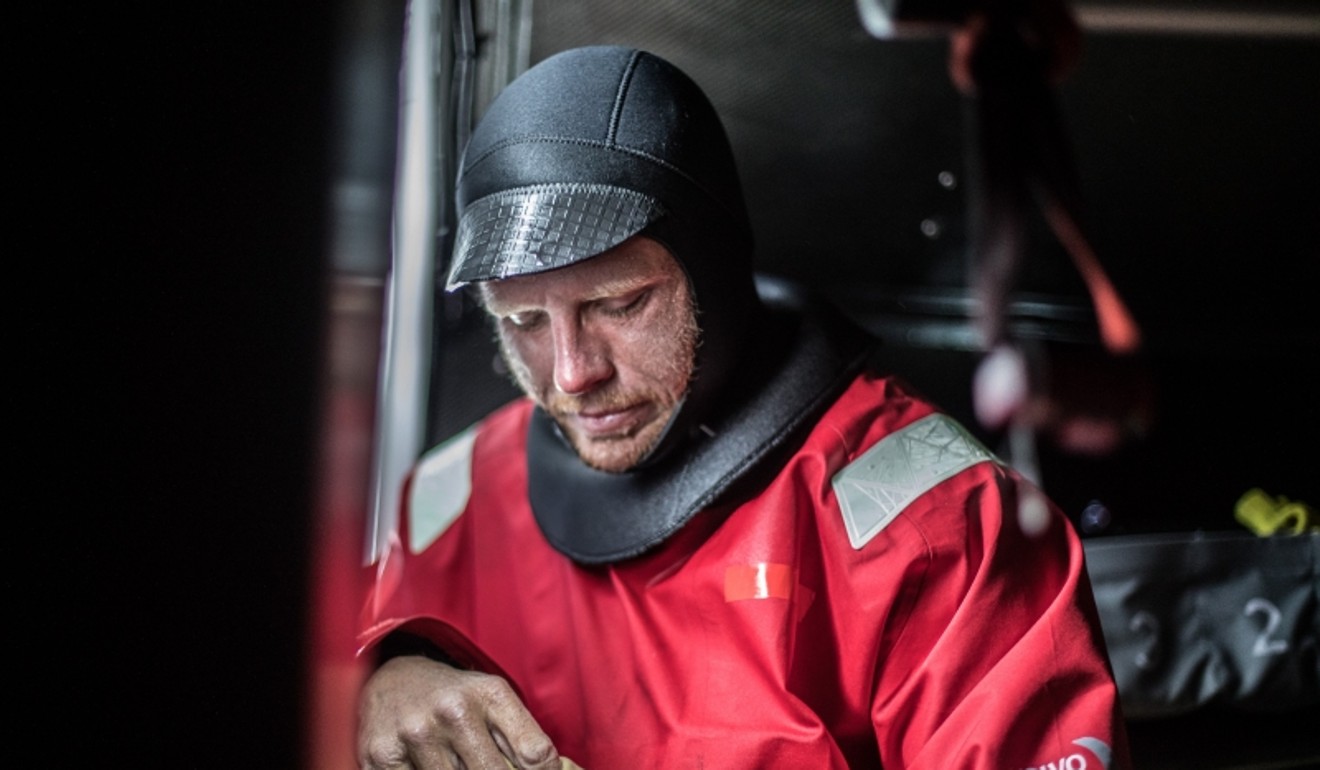
You said it would have been catastrophic for Scallywag to finish last in this leg. What were your thoughts when you were 90 miles behind soon after leaving Melbourne?
I was concentrating hard on a plan on how we didn’t come last. I knew how … if we get a good result for the race I knew what it could do for Hong Kong sailing, what it would do for our team owner [Lee] Seng Huang, and I knew a poor performance just would not have any sort of effect on what we’re trying to do. And I’ve proved to be right. We’re lucky enough to win and I think sailing has already had a big boost here in Hong Kong. I knew the importance of the result.
Clearly you believed you could make up the deficit. What were the strategies employed to close the distance?
We always knew that we were going to close the distance because we got a lot of experience on board. We had a plan before we left of the way were going to execute it and we knew the other competitors were going to take a little bit of a different route, so we were quite confident that we were going to catch up with the leaders.
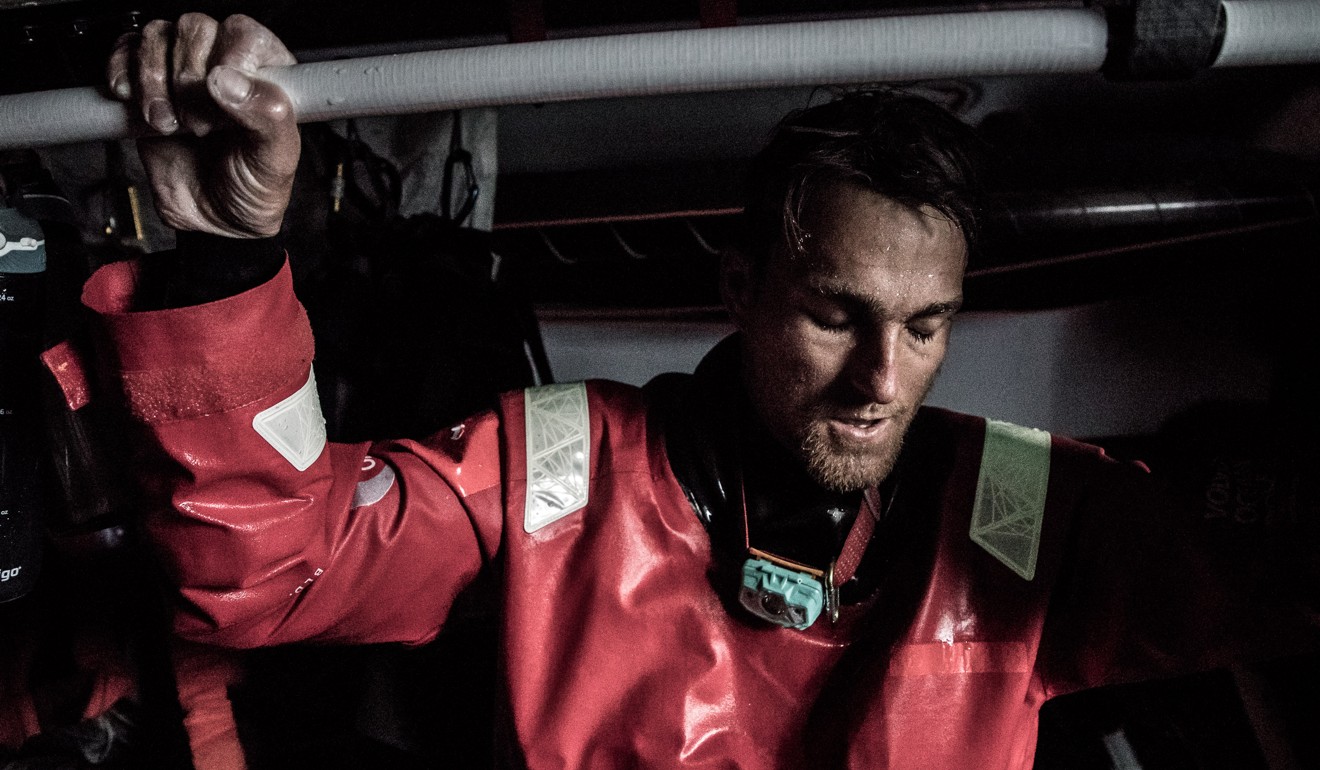
Scallywag did an amazing job clawing back the distance and led for a few hours but then you were quickly back to last, some 30 miles behind. You were quoted as saying “we’re idiots, we have no one to blame but ourselves”. What were the mistakes that made you fall behind?
In regards to that comment, one was a navigational error and the other one was that we don’t have a sail on the boat that everyone else has because it fell off in the leg before [from Cape Town to Melbourne] in the Southern Ocean. It was the J0 sail. That was a period of time we were just having to sail with the wrong sail.”
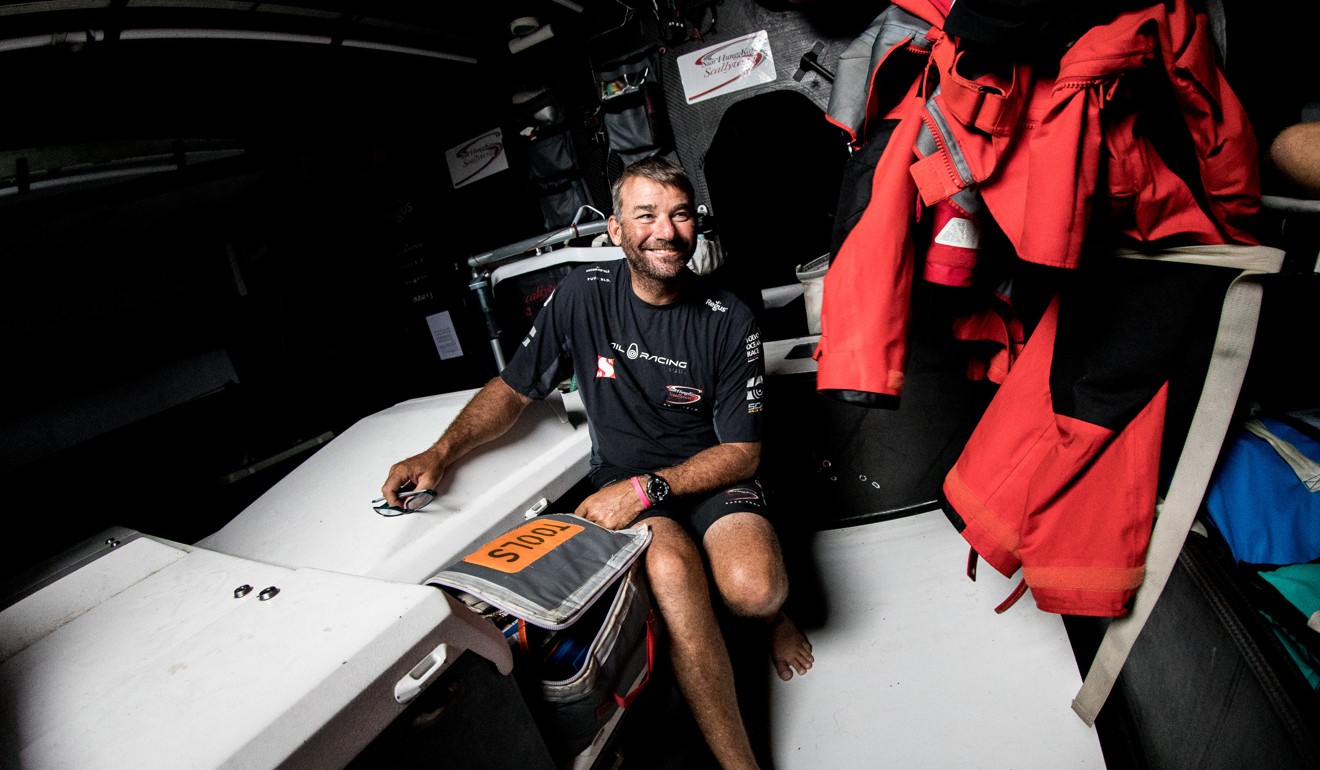
You quickly fought back again, cutting the corner and going south of the fleet. Did you feel you were taking a risk or did you know that racing line would be more beneficial?
We knew, that was part of our [strategy]. We weren’t sure it was going to work and it was something that we planned and discussed before the leg. We were confident it was going to be good for us but we just didn’t realise how good.
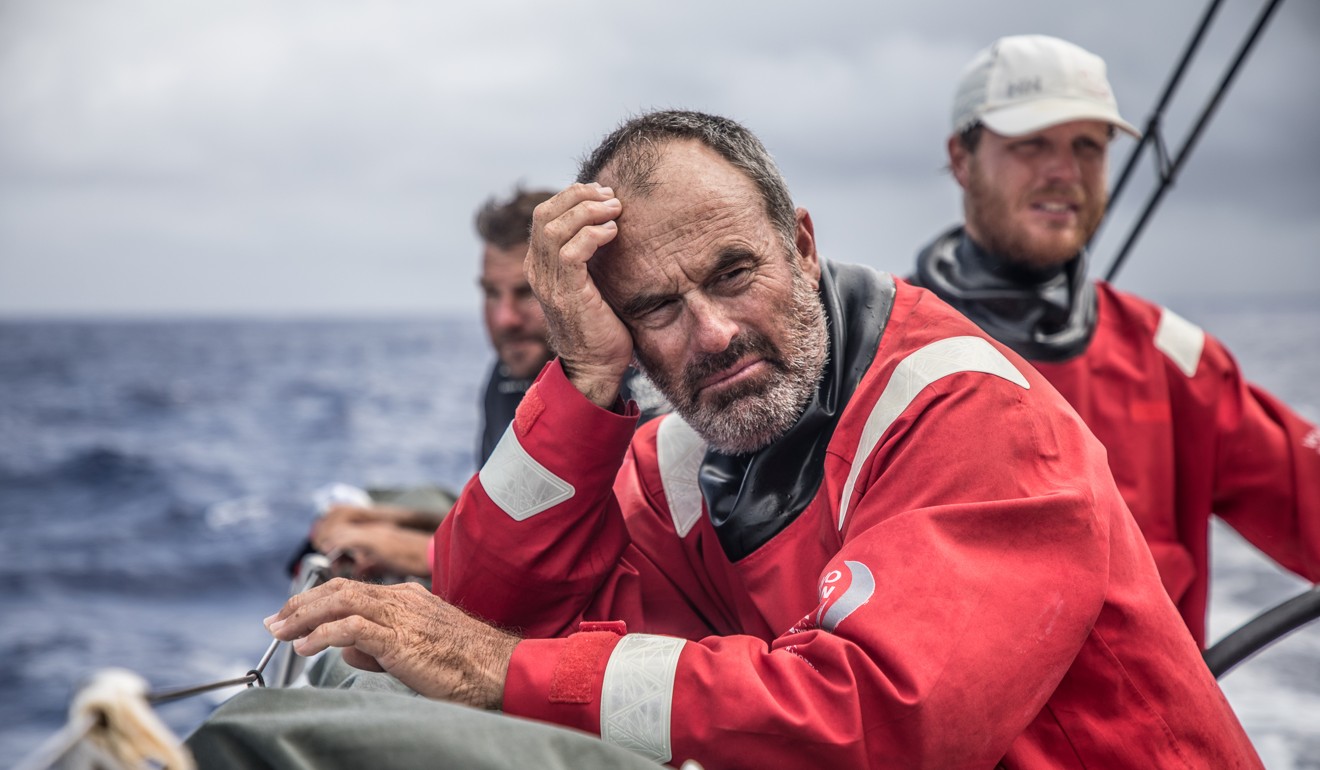
Once you had the lead again, it was basically a case of keeping it. What did you do over the last 2,000 miles to maintain your lead?
We actually led for the last seven days. Then we had one stage where we had a large lead but it got quite small because of the weather change. Over 48 hours we were only 30 miles ahead. Those are the situations when the crew … basically everyone stays awake and works hard together and makes sure we don’t make any mistakes.
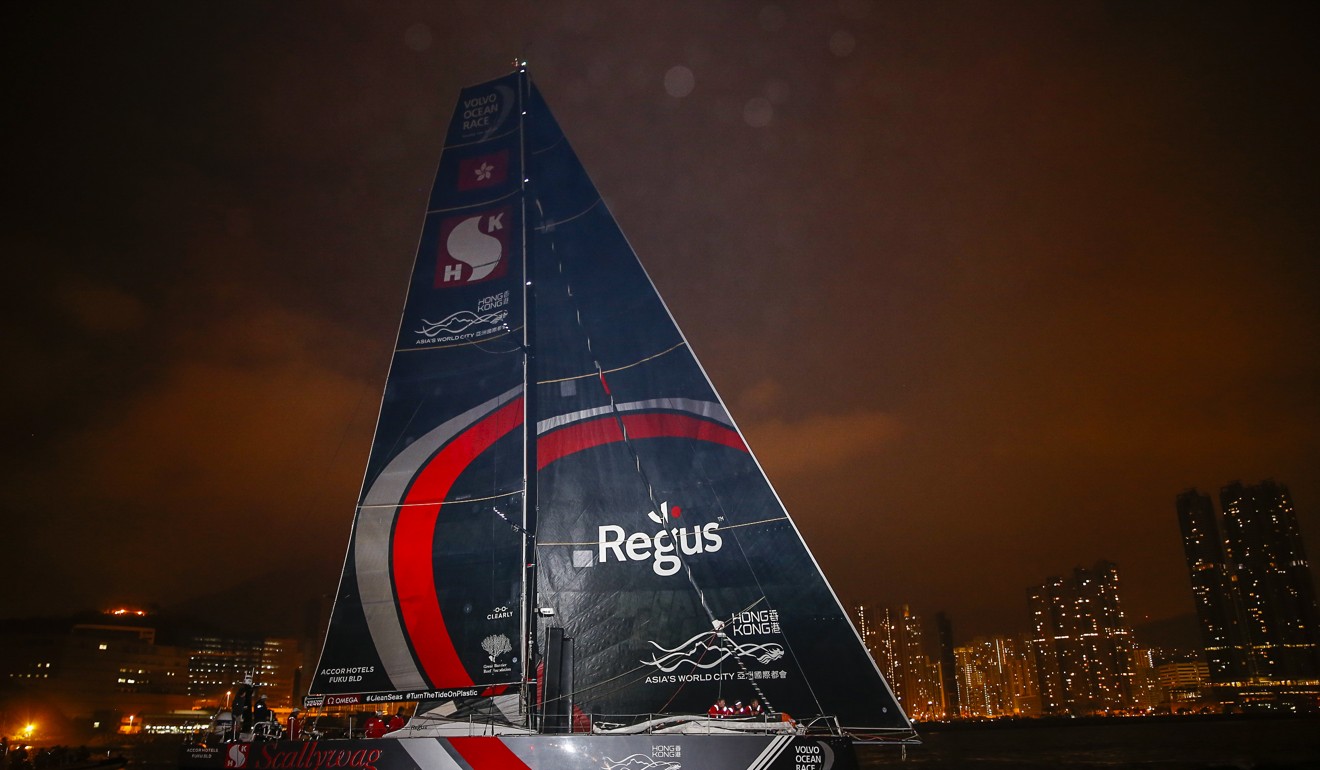
You seemed to have a great working relationship with navigator Libby Greenhalgh. How important was she in choosing the best course for victory?
Very good … we worked very well together. In the Scallywag team, we have a very good team ethos. There are no egos and everyone is treated equally and with respect. The three decision makers on the boat was Libby Greenhalgh, myself and Greg Wharington. Between the three of us, we jointly took the decision together. Libby was instrumental in giving us the right weather information.
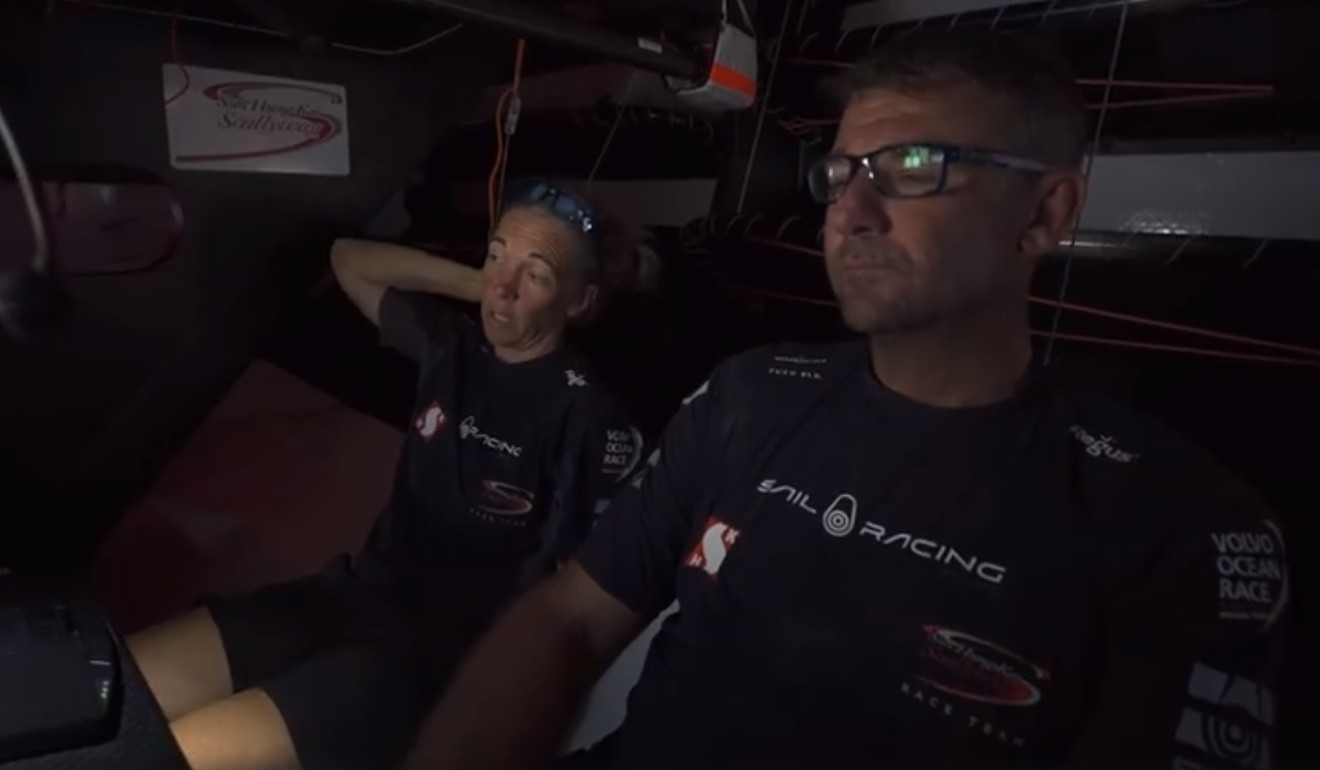
You said you choose characters ahead of sailing ability. Describe some of the characters on your crew.
Characters, I meant was the character of the person. People need to have the right ethos, never give up, respect for each other. They need to always believe they can come through and need to work hard for each other. On board the boat, we have an age range from 22 to 53. We are very lucky that off the water and on the water we have managed to put together a group of similar minded people.
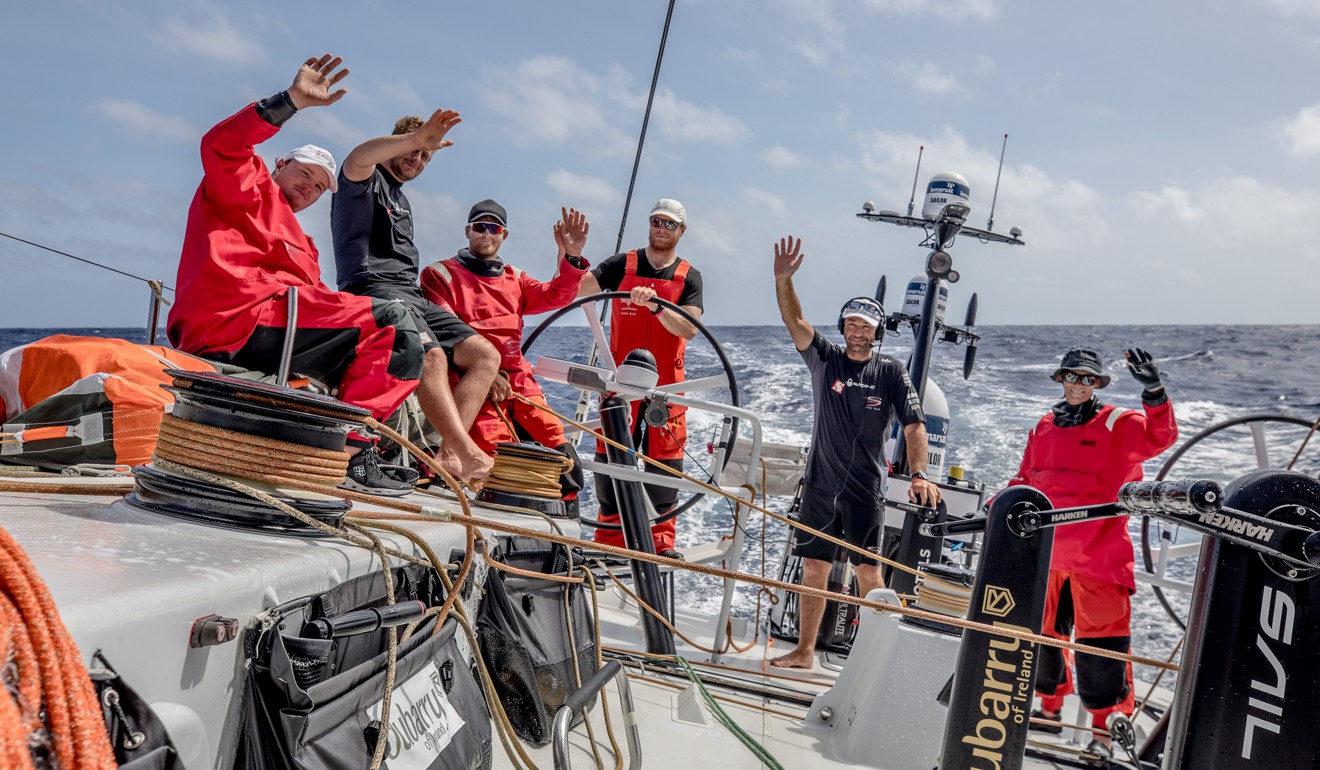
What was it like sailing into Hong Kong as winners, knowing what you had been through?
It was an extreme relief. It was an extremely emotional moment for me, personally. I live here so it was sort of coming home for me. I knew the enormity of how positive the result would be for the sport so … I’m not normally an emotional guy but it was an extremely emotional moment for myself, the team and my family.
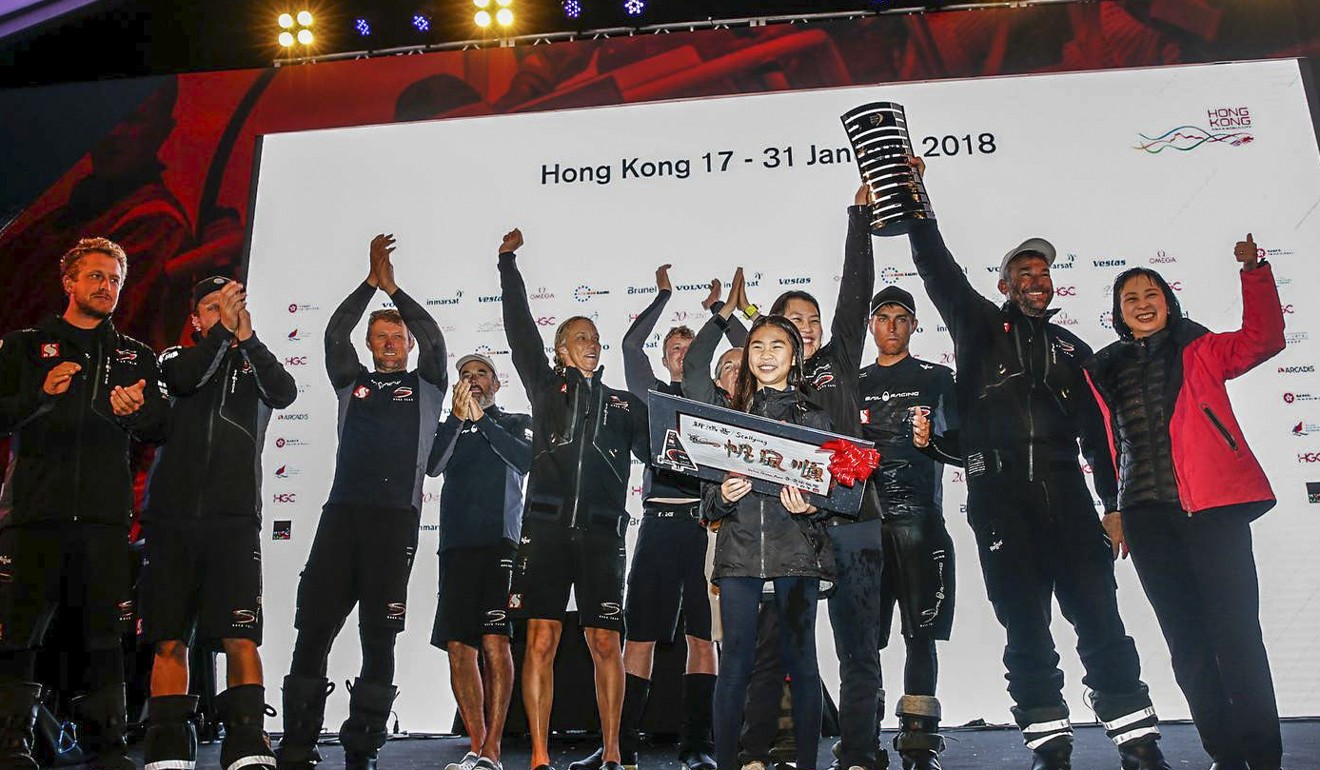
We saw on the video you telling off Alex Gough after he went overboard. Did you have another word with him off camera? And if so, what did you say?
I can’t really tell you exactly the words … but I certainly had some words on not being too complacent and being a bit more careful.
There was clearly extra motivation to win leg four to Hong Kong. Can you maintain that intensity for the rest of the race?
I think so, we were with the boss last night at dinner and he reminded everybody that our plan … we were always going to struggle initially, and our plan was to have our best performance in Hong Kong and be close to the podium and by the time we reach Auckland, be in the top three. And being third overall in Auckland is very, very possible. With our rate of progress, we are in line with that, so Hong Kong should look for some more good results from us.
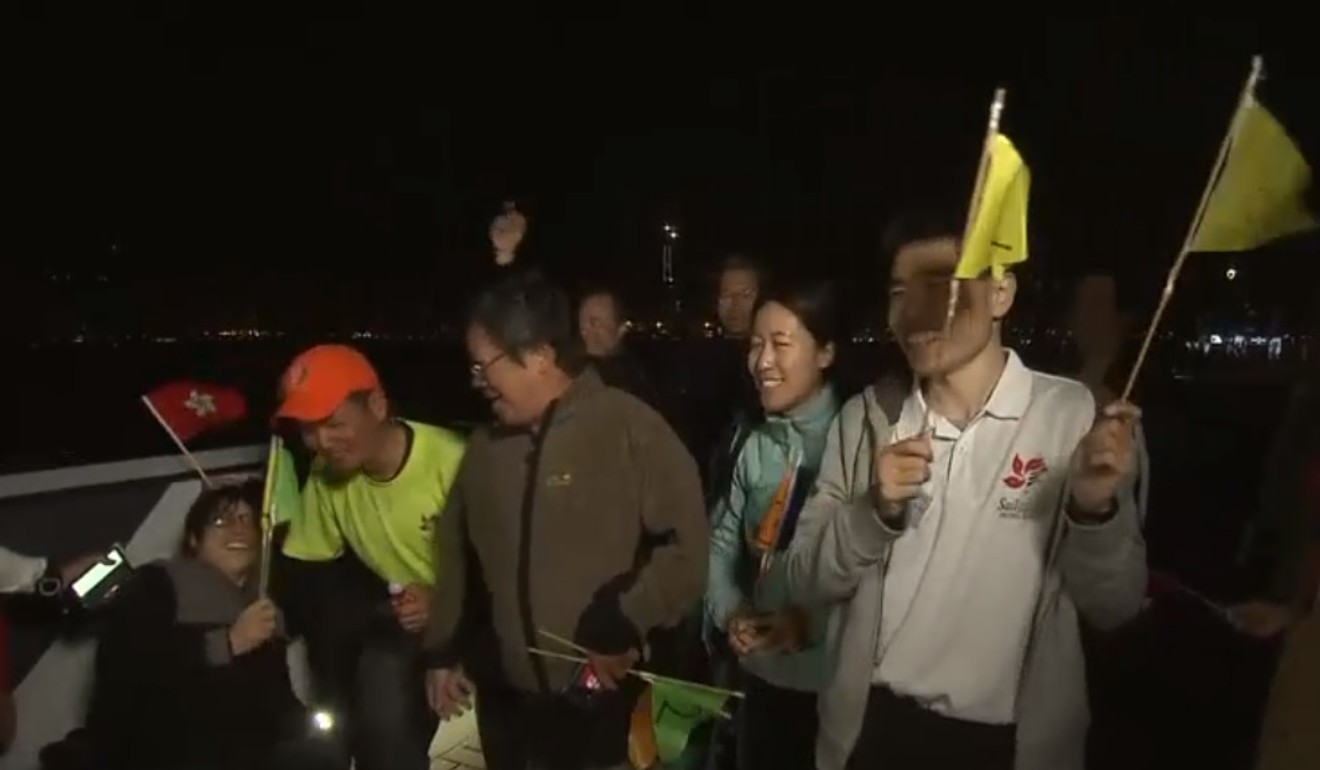
Anything else you would like to add?
On behalf of team, the support we’ve had since arriving here in Hong Kong has been fantastic. We weren’t actually aware of how much the local community got behind us by actually watching stuff like the [online live] tracker. And that’s certainly going to help us. We are halfway now with another 20,000 miles to go around the world and this will certainly help us to get a better result.

